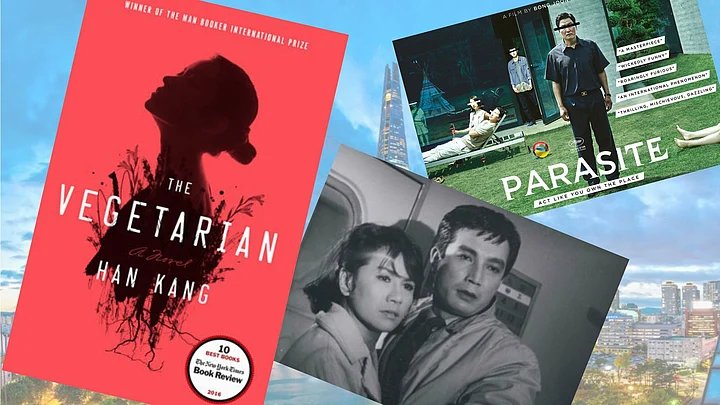Imagine a place where your blood group defines your personality traits, where the lifts don’t have the number 4, because it is a bad omen. A place where make-up for men, sells like hot cakes and the favourite word and food is the same, Kimchi. Yes, strange as it sounds, all these unusual things are part of South Korea’s culture and when I saw Parasite recently, I was immersed in nostalgia.
Back in 2016, I got an opportunity to be the part of a prestigious writer’s residency in an art space in Seoul for two months. More than me, it was my little daughter who was excited, she wanted me to get her the autograph of a K-Pop band and my wife told me to get a funky Korean haircut done. We had heard that men’s salons in South Korea can chop your hair in more than a 1000 ways.
Once I landed in South Korea, I realised that the land was a combination of the bizarre and the beautiful. It is consolidating its erstwhile identity in the contemporary creative landscape of the arts and expressions and the cocktail is worth tasting.
South Korea is the land of history and their storytellers draw a lot of fire and inspiration from their own history. They have still not erased the memory of the Japanese invasion in the 16th century. I found out that the most watched and highest-grossing South Korean film of all time is The Admiral: Roaring Currents (2014), which is about South Koreans defeating the Japanese.
An interesting anecdote in Korea deals with Kim Jong-il, the father of the current North Korean leader Kim Jong-un, who was a film buff. Kim Jong-il’s love for cinema was so great that he even ordered the kidnapping of a South Korean actress Choi Eun-hee and her ex-husband Shin Sang-ok, a filmmaker. They were forced to make several films until they sought asylum abroad. Kim Jong-il also collected some of the early masterpieces of Korean cinema as part of his private archive in the North. Among the nearly 200 films in his collection was The Late Autumn, released in 1966 by director Lee Man-hee.
Korean cinema has evolved tremendously from the early days. The first on-screen kiss in a South Korean film was shown in 1954, that’s nearly six decades after the first kiss in the West in the 1896 film The Kiss. There was an uproar in South Korea when the two protagonists of the film The Hand of Destiny had their lip-to-lip moment for a few seconds. It was a symbolic moment in Korean cinema that underlined the clash of Confucian values and ever-growing Western influence. The director and the actress both faced trouble because of the scene, despite it having been shot with the consent of the actress’s husband and in his very presence. The infuriated husband sued the director but eventually the two later settled. The film as a result got a lot of free promotion from the controversy and was a blockbuster. Gradually, with time and advent of digital technology South Korean industry made peace with the constant redefining of values across the world.
All these factors have pushed forward the storytelling industry in South Korea. It has shunned the misconception that pushing your stories to get a world exposure doesn’t always come into the category of showing off. As Miky Lee (the godmother of South Korean cinema and also the executive producer of Parasite) said, the world would love her country’s art and culture if it was exposed more. The Oscar win proves she was right.
So for years now, South Korean cinema has been marinated in culture, history and conflict and the resultant meat is Parasite, a couple of years after the Booker for Han Kang’s The Vegetarian, which has pushed Korean literature and cinema to new heights and a global stage. Now the time has come for a ‘Gogigui’, a splendid Korean barbeque, with the most relishing spread of different kinds of meat. A must try when in Korea.
And after those two exotic months in South Korea, I came back to Mumbai with cropped hair but autograph of the K-Pop band requested. The fridge magnet did not excite my daughter and the cropped hair did not earn me any praises from my wife. But, I came back enriched and absorbed.
(Pankaj Dubey is a bestselling Penguin author and a former journalist with the BBC World Service in London. His latest title is ‘Trending in Love’. Follow him @carryonpd )
